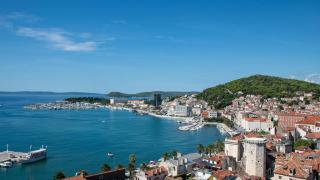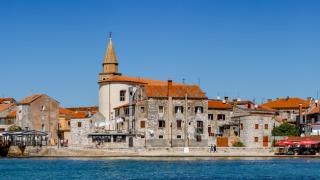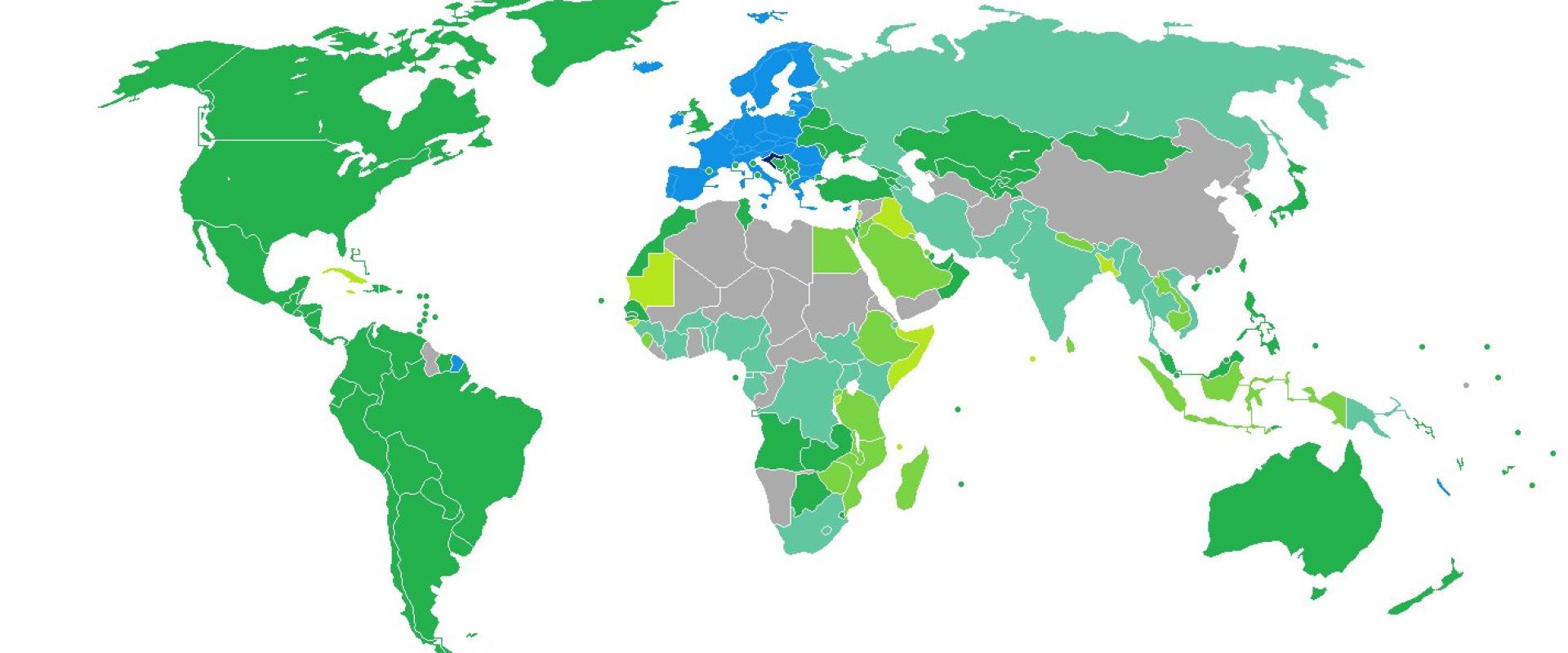Unraveling the Visa Maze
Understanding visa requirements for Croatia can be a daunting task, especially given the varying regulations based on nationality. If you're a U.S. citizen, consider yourself fortunate—you can enjoy a visa-free stay for up to 90 days. However, travelers from other countries may need to secure a Schengen visa, which typically incurs an application fee of around €80.
Before you even start packing your bags, it’s essential to clarify your visa situation, as this knowledge can significantly shape your travel plans. If you're considering a summer trip, gathering all necessary documents in advance is wise to avoid any last-minute complications. Picture this: you arrive at the airport only to discover a crucial document is missing. Strategic planning helps you sidestep that stress, allowing you to focus on savoring Croatia’s breathtaking landscapes and vibrant culture.
Passport Power: Who Needs a Visa?
When planning your getaway to Croatia, understanding the visa requirements based on your nationality is essential. Citizens from the European Union, the United States, Canada, Australia, and New Zealand can enjoy stays of up to 90 days within a 180-day period without needing a visa. For example, if you're a Canadian traveler, you can pack your bags for a summer escape without the hassle of applying for a visa ahead of time.
Conversely, nationals from certain countries, including Afghanistan, Bangladesh, and North Korea, must secure a visa before entering Croatia. If you fall into one of these categories, reaching out to a Croatian embassy or consulate in your home country is imperative for guidance on the application process. Visa costs generally range from €60 to €100, depending on your nationality and the type of visa you require.
UK citizens also benefit from visa-free access to Croatia for short stays. However, there are important passport stipulations to remember: your passport must be valid for at least three months beyond your intended departure date and should have been issued within the last ten years. While travel remains accessible post-Brexit, this means being more vigilant about your passport’s validity than before.
The Application Odyssey
Navigating Croatia's visa application process is a pivotal step in your travel journey. As a member of the Schengen Area, most travelers planning to stay for up to 90 days will require a Schengen Visa. The fees hover around €80 for adults and €40 for children aged 6 to 12, so budgeting for this expense is crucial.
Begin your application by gathering essential documents, including a valid passport, proof of accommodation, travel insurance with a minimum coverage of €30,000, and a flight itinerary. Once you have your documents in order, fill out the online visa application form available on the Ministry of Foreign Affairs website—this straightforward process can save you valuable time.
After completing the form, schedule an appointment at the nearest Croatian consulate or embassy to submit your documents. Aim to submit your application at least 15 days before your intended travel date to sidestep any last-minute rush. To ensure everything runs smoothly, double-check that all your documents are complete and meet the specified requirements; this diligence will help you avoid delays and frustrations.
With careful preparation, the visa application process can seamlessly integrate into your travel plans. Keeping these steps in mind will set the stage for a memorable Croatian adventure.
Navigating the Schengen Seas
As you plan your trip to Croatia, understanding the visa regulations is paramount. If you hold a Schengen visa from another member state—such as France or Germany—you can explore Croatia for up to 90 days within a 180-day period without needing a separate visa. Just ensure your visa remains valid for the entire duration of your stay.
For travelers from non-EU countries, applying for a visa at a Croatian consulate may be necessary. Expect to pay around €80 for a short-stay Schengen visa. If your plans include a longer stay or specific activities like work or study, be prepared to gather additional documentation to support your application.
Stay informed about any travel restrictions, especially for UK citizens navigating the post-Brexit landscape, as they now face different entry requirements compared to EU nationals. Maintaining flexibility in your travel plans can prove beneficial, given that regulations can shift. Keeping abreast of any changes will help ensure a smoother journey.
Extending Your Croatian Adventure
If you're considering an extended stay in Croatia, it's essential to understand the visa extension process. Most travelers can enjoy up to 90 days in the country without needing a visa; however, if you wish to extend your stay, timely action is critical. Applications for extensions are made at local police stations or branches of the Ministry of the Interior.
The application fee is approximately €60, and it's crucial to submit your request at least 30 days before your current visa or allowance period ends. Missing this deadline could curtail your Croatian adventure, so mark your calendar!
For questions or assistance, don’t hesitate to reach out to the Ministry of the Interior, where English-speaking staff are available to help you navigate the process smoothly. Enjoy your extended stay in Croatia—there’s a wealth of beauty and culture waiting to be discovered!








